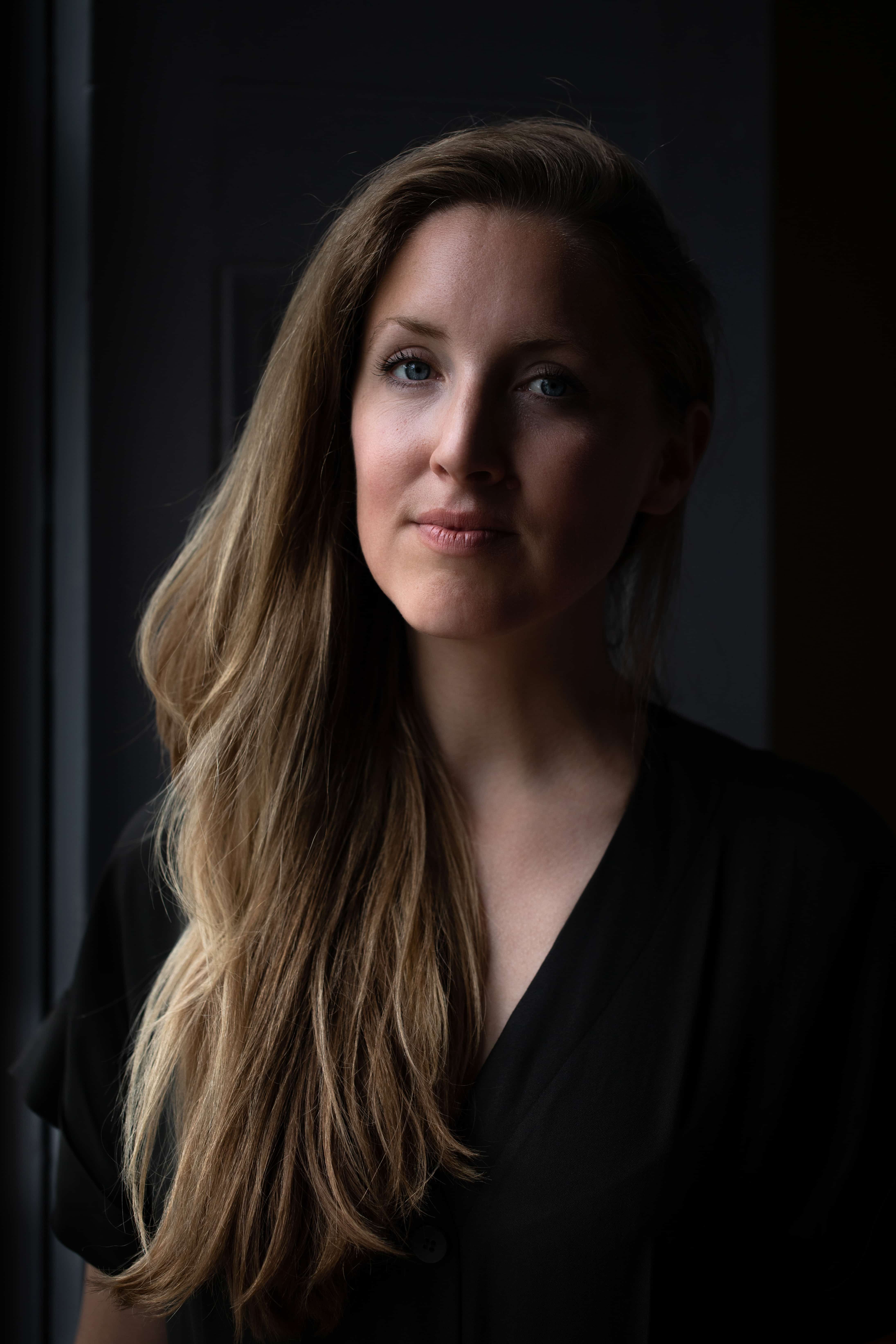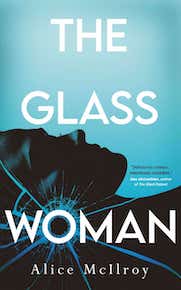 Our relationship with AI is ripe for Prospero/Ariel allusions, only it is increasingly unclear who the magus is. In Shakespeare’s The Tempest, sorcerer Prospero rescues Ariel from imprisonment in a tree, but then enslaves the spirit, who carries out Prospero’s demands in order to gain freedom. In my debut novel, The Glass Woman, a female neuroscientist trials a pioneering AI brain implant called Ariel. It is a cautionary tale exploring AI as a manifestation of our very human desire to transcend our own limitations; the novel explores surpassing the boundaries of human perception, as well as escaping past trauma. In The Glass Woman, Ariel is an intelligent artificial neural network capable of streaming data between the brain and a computer. Ariel’s creators intend it to act as an internal therapist, although protagonist Iris, who wakes with no memories to be told she has voluntarily signed up to be the first test subject, is sceptical whether that is its true purpose. It is a dark psychological thriller, and whether readers love or hate it, my hope is it will spark some thoughts or discussion about our relationship to AI, the ethical choices we make now, and their effect on the human psyche.
Our relationship with AI is ripe for Prospero/Ariel allusions, only it is increasingly unclear who the magus is. In Shakespeare’s The Tempest, sorcerer Prospero rescues Ariel from imprisonment in a tree, but then enslaves the spirit, who carries out Prospero’s demands in order to gain freedom. In my debut novel, The Glass Woman, a female neuroscientist trials a pioneering AI brain implant called Ariel. It is a cautionary tale exploring AI as a manifestation of our very human desire to transcend our own limitations; the novel explores surpassing the boundaries of human perception, as well as escaping past trauma. In The Glass Woman, Ariel is an intelligent artificial neural network capable of streaming data between the brain and a computer. Ariel’s creators intend it to act as an internal therapist, although protagonist Iris, who wakes with no memories to be told she has voluntarily signed up to be the first test subject, is sceptical whether that is its true purpose. It is a dark psychological thriller, and whether readers love or hate it, my hope is it will spark some thoughts or discussion about our relationship to AI, the ethical choices we make now, and their effect on the human psyche.
I started writing The Glass Woman during a turbulent period in my life, emotionally and psychologically. I was working in a toxic environment and I wanted to explore the toxicity of a workplace pervading the domestic sphere; the way a toxic environment colours everything. In the book, there is an unhealthy working environment at Sila Plc – Iris and husband Marcus’ workplace – accelerating progress at all costs, and consequently there is a coldness that is pervasive to the sections describing Iris’ clinical and dehumanising trial.
The place I was working had a culture of intensively monitoring employees, and that coincided with a time when there were seismic increases in surveillance technology (facial recognition AI algorithms were starting to be used to monitor schoolchildren in China), and there were advances in AI behind the scenes, which hadn’t fully entered public consciousness yet, but were starting to. The consequences of where AI and surveillance technology could lead us – both for society and the individual – really frightened me. I took this to the extreme in The Glass Woman and began writing a speculative novel about a female scientist who trials a pioneering brain implant: AI and invasive surveillance gaining access to the most private place of all – the human mind, and AI’s subsequent possible control over the human self. It opens up questions about the relationship between the mind and body, the impact on the human psyche, and human identity, as well as questions about truth, control and consent: if AI were implanted into a character's brain, how would they know what to trust of the information being fed to them? Would the human mind be able to cope, and where would consent and control begin and end? In 2017, there were precedents for brain computer interfaces: notably, neurologist Phil Kennedy who travelled to Belize in 2014 to have a brain computer interface implanted (he had it partially removed less than a year later). In March 2017, Elon Musk’s new company Neuralink was publicly reported to have “the intention of connecting computers directly to human brains.”
Seven years later, with The Glass Woman due to be published on 2nd January 2024, the concept of the book is already closer to becoming a reality. In May 2023, Neuralink’s brain implant was granted FDA approval for human testing, raising complex ethical concerns: the long-term consequences on the human body are unknown, how the company safeguards the data it will have access to; patients’ privacy, cognitive liberty and the impact on identity.
When I began researching AI in 2017, the ethical implications behind its use (or misuse) appeared to me to be stark. And whether we, as a society, will take heed of ethical implications, or whether our relationship with AI will mimic Victor Frankenstein’s flight from responsibility when confronted with his own creation. Victor falls victim to passivity in the face of his ‘hideous progeny’, and it takes a catastrophe (as the monster begins killing his friends and family) for him to realise his responsibility, both for his creation and for its deeds. Mary Shelley’s novel was prescient in 1818 for its response to scientific developments at the time, but is it a parable for our relationship with AI too? Just as “thought and care must be given to [the monster’s] place in the sphere of human relationships,” according to political theorist Langdon Winner, so it must for AI.
In writing The Glass Woman, I was indebted to AI expert Dr. Mike Seymour’s research into AI ethics and whether by deferring decision making to an AI agent, by “relinquishing our agency, we inherit the biases of the computer.” My novel explores the consequences of a (perhaps unwilling) “abdication of cognitive effort to an agent” – Ariel.
When it comes to AI, or machine learning, what frightens me is not the technology itself, but our response to it. How we use it, regulate it, talk about it and take responsibility for it. In 2015, Google executive Ray Kurzweil predicted that we would become more “God-like” by connecting our brains to the cloud (which he predicted happening by the 2030s) and that “we’re going to add more levels to the hierarchy of brain modules and create deeper levels of expression.” This is an optimistic view of the outcome, but the phrase “God-like” is troubling. It brings me back to Prospero, the sorcerer, and Ariel, his spirit servant, and the semblance of control; to Frankenstein, that cautionary tale of playing God, whose creation reminds him “You are my creator, but I am your master”. The Glass Woman explores AI as a manifestation of human desire for conjuring sorcery and creating avatars that can go beyond our own limitations – which soar high above us and go beyond our own meaning, and also beyond our own understanding, and the peril that invokes. AI is now advancing at such a rate that its consequences are beyond our comprehension. I believe we need artists and writers to help conceptualise the place of AI in our world, and to reflect on its possible outcomes and ethical implications, to prevent us, like Frankenstein, realising our responsibility, and the thought and care it requires, too late.

The Glass Woman by Alice McIlroy
2nd January 2024 by Datura/Angry Robot Books
order here.
Black Mirror meets Before I Go to Sleep by way of Severance.
If you could delete all the hurt and pain from your life... would you? Even if you weren't sure what would be left?
Pioneering scientist Iris Henderson awakes in a hospital bed with no memories. She is told that she is the first test-subject for an experimental therapy, placing a piece of AI technology into her brain. She is also told that she volunteered for it. But without her memories, Iris doesn't know what the therapy is or why she would ever choose it.
Everyone warns her to leave it alone, but Iris doesn't know who to trust. As she scratches beneath the surface of her seemingly happy marriage and successful career, a catastrophic chain of events is set in motion, and secrets will be revealed that have the capacity to destroy her whole life.